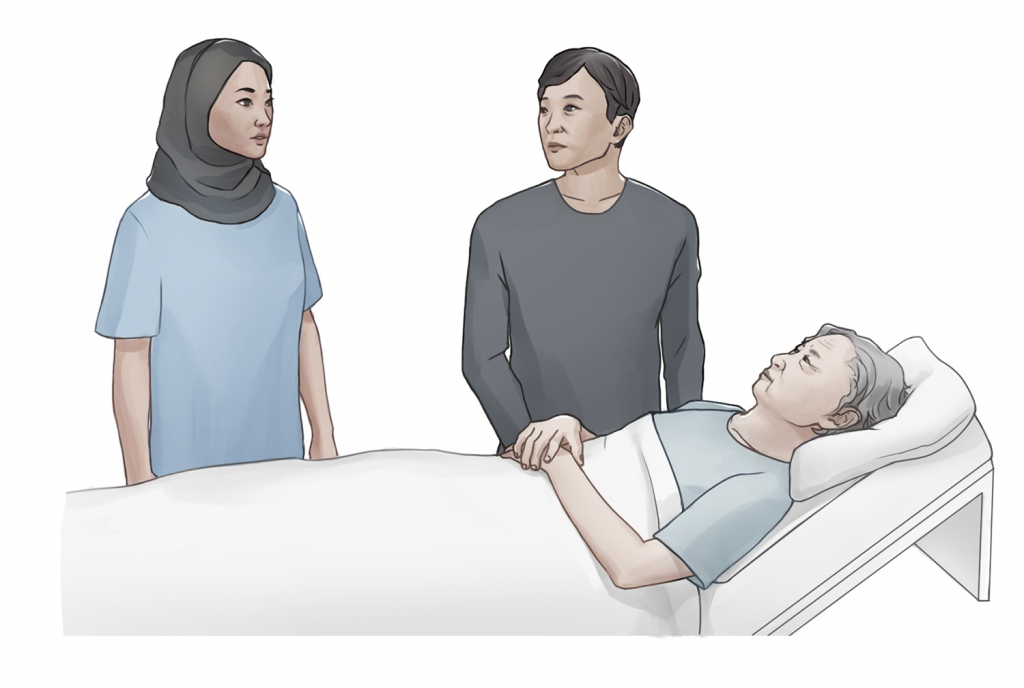The Client Interview
The client interview is an important component of nursing practice and involves several sources as reflected in Figure 2.2. It involves communicating with the client – who is considered the primary source – to collect subjective data (i.e., information that the client shares with you). The client interview may also involve collecting data from secondary sources such as family, friends, care partners, and other healthcare providers. It is part of your assessment in which you learn about the client and combine these collected data with objective data (information that you collect when performing a physical exam).

As a nurse, you must ensure that the client interview is informed by the CNO (2019) Standard on Therapeutic Nurse-Client Relationship, because therapeutic communication and relationships are the foundation of an effective client interview. To meet this standard, you must think carefully about how to communicate while conducting the client interview.
The importance of good communication cannot be overstated. It is a foundational pillar of a good interview. The interview often serves as the impetus for therapeutic action. For example, without a client disclosing chest pain, it would be difficult for you to interpret what is wrong or ailing the client. The care provided by nurses is contingent on the accuracy of the data they collect, so nurses must develop their relational skills to accurately and holistically gather useful data from clients. If data are lacking, nurses are limited in providing effective care. For example, clients may not share certain problems if they are unsure whether you care or are interested. Also, clients may be afraid to reveal relevant health information because they fear judgment or ridicule, which could impede your ability to address their health issue.
The nature of the interview is influenced by the interview purpose. For example, an interview may be short and focused, or it may be more detailed and comprehensive, depending on the client’s health needs/reason for seeking care. The interview purpose is often influenced by where you work, for example an acute or primary care setting. No matter what the purpose, there are common principles and strategies to incorporate when conducting the interview, as detailed in the upcoming sections.
Points of Consideration
Care partners
The term care partners refers to family and friends who are involved in helping to care for the client. They may be referred to as informal caregivers or family caregivers, but care partners is a more inclusive term that acknowledges the energy, work, and importance of their role.
Activity: Check Your Understanding
Attribution Statement
Content for the Points of Consideration box was adapted from:
The Complete Subjective Health Assessment by Jennifer L. Lapum, Oona St-Amant, Michelle Hughes, Paul Petrie, Sherry Morrell, and Sita Mistry, licensed under a Creative Commons Attribution-ShareAlike 4.0 International License.
Care partners are family and friends who are involved in helping to care for the client.

